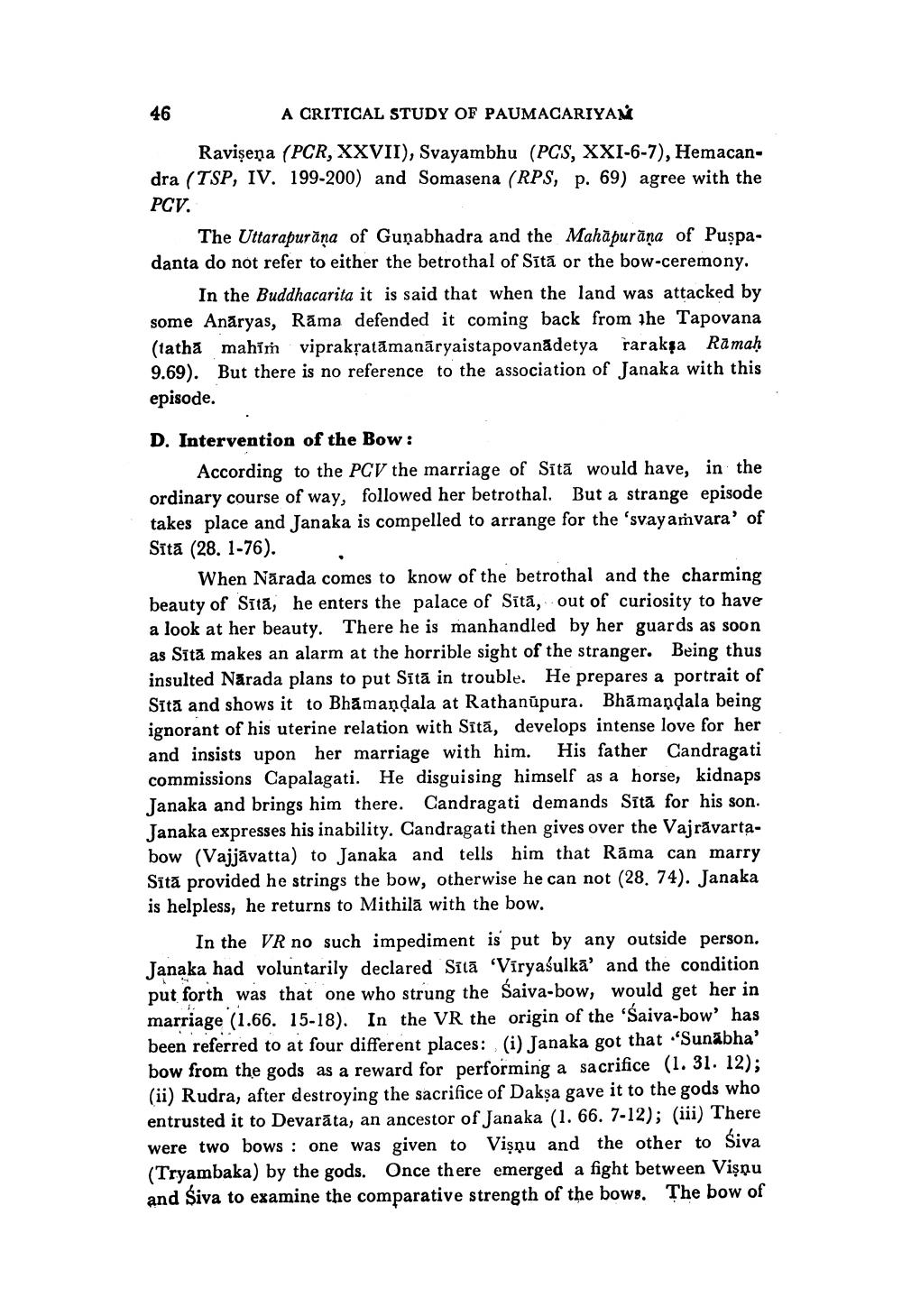________________
46
A CRITICAL STUDY OF PAUMACARIYAN Ravişeņa (PCR, XXVII), Svayambhu (PGS, XXI-6-7), Hemacandra (TSP, IV. 199-200) and Somasena (RPS, p. 69) agree with the PCV.
The Uttarapurāna of Guņabhadra and the Mahapurāna of Puşpadanta do not refer to either the betrothal of Sītā or the bow-ceremony.
In the Buddhacarita it is said that when the land was attacked by some Anāryas, Rāma defended it coming back from the Tapovana (tathā mahim viprakratāmanāryaistapovanadetya rarakṣa Ramah 9.69). But there is no reference to the association of Janaka with this episode.
D. Intervention of the Bow :
According to the PCV the marriage of Sītā would have, in the ordinary course of way, followed her betrothal. But a strange episode takes place and Janaka is compelled to arrange for the 'svayamvara' of Sita (28. 1-76).
When Nārada comes to know of the betrothal and the charming beauty of Sita, he enters the palace of Sītā, out of curiosity to have a look at her beauty. There he is manhandled by her guards as soon as Sītā makes an alarm at the horrible sight of the stranger. Being thus insulted Narada plans to put Sītā in trouble. He prepares a portrait of Sita and shows it to Bhamandala at Rathanūpura. Bhāmaņdala being ignorant of his uterine relation with Sītā, develops intense love for her and insists upon her marriage with him. His father Candragati commissions Capalagati. He disguising himself as a horse, kidnaps Janaka and brings him there. Candragati demands Sītā for his son. Janaka expresses his inability. Candragati then gives over the Vajrăvartabow (Vajjāvatta) to Janaka and tells him that Rāma can marry Sītā provided he strings the bow, otherwise he can not (28. 74). Janaka is helpless, he returns to Mithila with the bow.
In the VR no such impediment is put by any outside person. Janaka had voluntarily declared Sītā Vīryaśulkā' and the condition put forth was that one who strung the Saiva-bow, would get her in marriage (1.66. 15-18). In the VR the origin of the 'Saiva-bow' has been referred to at four different places: (i).Janaka got that Sunabha' bow from the gods as a reward for performing a sacrifice (1. 31. 12); (ii) Rudra, after destroying the sacrifice of Daksa gave it to the gods who entrusted it to Devarāta, an ancestor of Janaka (1. 66. 7-12); (iii) There were two bows : one was given to Vişņu and the other to Siva (Tryambaka) by the gods. Once there emerged a fight between Vişņu and Siva to examine the comparative strength of the bows. The bow of




